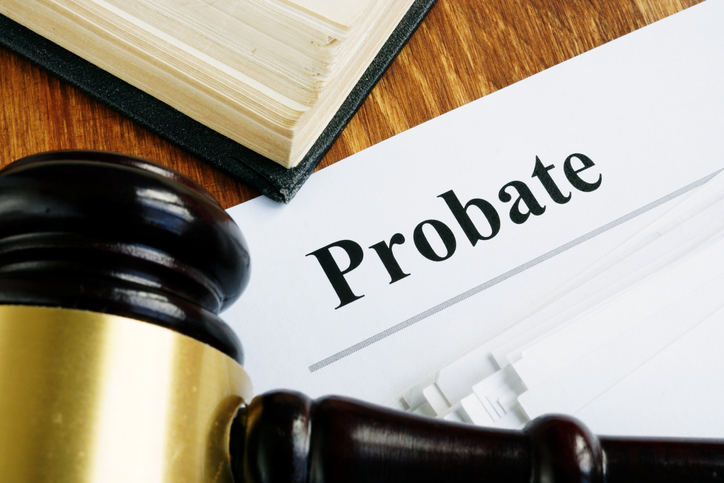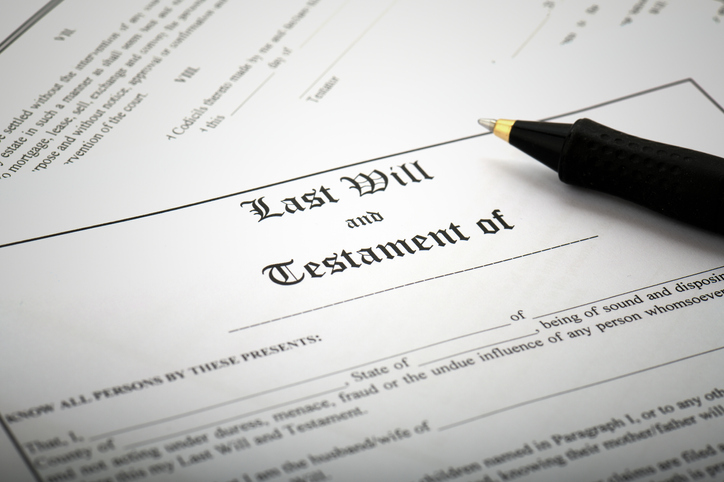
Probate - Inheritance Tax and Estates

Practical issues
Personal representatives are those who deal with the estate of a deceased either under the terms of a Will (when they are known as executors) or according to the rules of intestacy when there is no Will, or under a deed varying a Will or entitlement in the intestacy. Their responsibilities are to safeguard the estate assets, distribute them in accordance with the Will or intestacy rules and discharge the estate’s liabilities. They need to deal with the deceased’s tax position for the year of death and any earlier years, and also their own tax position as personal representatives until the administration of the estate is complete. This may take some time if the estate is complex.
Personal representatives apply to a Probate Registry for probate, the official proving of a Will, or for letters of administration where there is no Will. They must submit the appropriate inheritance tax (IHT) form to HM Revenue & Customs which details the assets and liabilities of the estate and the calculation of the IHT. They also have to include details of earlier transfers affecting the IHT liability and must take steps to trace potentially exempt transfers made by the deceased in the seven years before death. The IHT due on an estate must be paid when probate is applied for, or if earlier by 6 months after the end of the month in which death occurs, although IHT on certain assets may be paid in annual instalments over ten years.
The administration of IHT by HM Revenue & Customs is predominantly paper based. However an online service has been introduced which allows for reporting in some cases.

Tax efficient wills
It is important for a testator, a person who has made a Will, to have a well drafted Will to ensure that property is left on their death in the way they wish and also to be mindful of the incidence of IHT and the various reliefs which the IHT rules provide. A testator is also able to choose the executors who will administer the estate. In the absence of a Will an estate is distributed in accordance with the law of intestacy, and this will usually not accord with the deceased’s wishes nor make the best use of IHT rules and reliefs.
As mentioned in our earlier articles, gifts between spouses or civil partners are exempt from IHT unless the donor is UK domiciled and the donee is not, when the exemption is limited to £325,000, the nil rate band. Everyone is entitled to the IHT nil rate band (NRB) and the unused proportion of the NRB of the first spouse to die may be transferred to the surviving spouse. It may be appropriate for the first spouse to die to leave the excess over the NRB to the surviving spouse so that tax is paid at a later date, with the surviving spouse able to make further tax exempt gifts such as small annual gifts (£250), annual transfers up to £3,000 and normal expenditure from excess income, thereby reducing their taxable estate.
It is possible to use up the NRB by leaving up to £325,000 to the trustees of a discretionary trust. If the surviving spouse is a beneficiary the trustees have discretion to meet any unexpected needs they may have, and such a trust can be useful where there is some uncertainty when a Will is made as to who should benefit.
A further consideration is the residence nil rate band (RNRB, see earlier article) with its very complex rules. This provides a further NRB when the value of a residence is passed to direct descendants. Ensuring a home is left to children will safeguard the RNRB and it may be appropriate to leave a life interest in the family home to a spouse with remainder to the children.
Businesses and farm land may benefit from IHT exemptions under the rules of business property relief and agricultural property relief. It is often best where possible to leave such property to beneficiaries who are not already exempt so as to make the best use of these exemptions.
Gifts to charity reduce the value of an estate for IHT purposes. If 10% or more of the net value of an estate is left to qualifying charities the IHT will be paid at the reduced rate of 36%, instead of 40%.

Deeds of variation
Those entitled to an estate under a Will or intestacy are able to vary the way in which it is distributed or to disclaim their entitlement, provided they do so within 2 years of the death. The deed of variation or disclaimer takes effect as if it had applied at the date of death and IHT is charged on the basis of the revised distribution. A deed of variation can be advantageous to use up a deceased’s NRB, or to redirect assets to an exempt beneficiary or one with a low income who will pay less income tax on income derived from the assets.
While IHT considerations are important, it must always be remembered that a testator should seek to provide for those left behind in a practical and sensible way. This ought to be the overriding aim and a Will should be reviewed at regular intervals to achieve the ideal result.

Should you have any queries or questions in respect of the above, please reach out to your usual Arnold Hill & Co contact, call our mainline 0207 306 9100 or email our general address info@arnoldhill.co.uk
The information in this article is believed to be factually correct at the time of writing and publication, but is not intended to constitute advice. No liability is accepted for any loss howsoever arising as a result of the contents of this article. Specific advice should be sought before entering into, or refraining from entering into any transaction.
